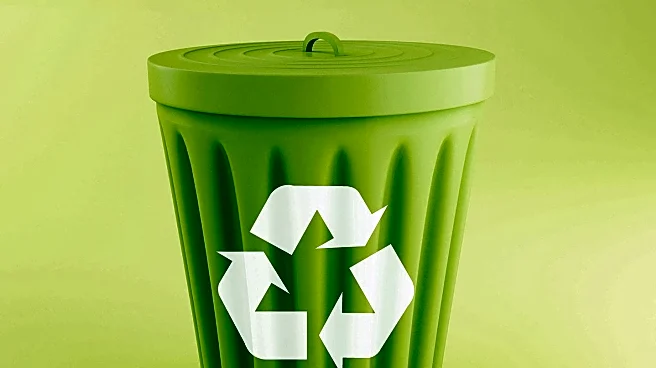What is the story about?
What's Happening?
Recent insights into recycling practices have highlighted a common misconception about the process of recycling aluminum cans. It has been revealed that crushing cans before recycling can lead to inefficiencies in waste management. The sorting machines at recycling plants rely on the shape of cans to identify and process them correctly. When cans are crushed, these machines may fail to recognize them, resulting in potentially recyclable materials being sent to landfills. This revelation underscores the importance of proper recycling practices, which include rinsing cans and removing any non-metal components before disposal. The emphasis is on ensuring that recyclables are processed correctly to maximize their reuse and minimize environmental impact.
Why It's Important?
The significance of this development lies in its potential impact on environmental sustainability and waste management efficiency. Proper recycling practices are crucial for reducing landfill waste and conserving natural resources. By understanding and correcting common recycling mistakes, such as crushing cans, individuals can contribute to more effective recycling systems. This not only helps in reducing the carbon footprint but also supports the recycling industry by providing cleaner and more manageable materials. The broader implication is a more sustainable approach to waste management, which is essential for addressing environmental challenges and promoting a circular economy.
What's Next?
Moving forward, there is a need for increased public awareness and education on effective recycling practices. Recycling facilities may also consider updating their guidelines and communication strategies to ensure that the public is informed about the correct methods of recycling. Additionally, advancements in recycling technology could be explored to improve the efficiency of sorting machines, potentially accommodating crushed cans in the future. Stakeholders, including environmental organizations and government agencies, may play a role in advocating for these changes and supporting initiatives that enhance recycling processes.
Beyond the Headlines
This issue also raises questions about the broader implications of consumer behavior on environmental policies. The need for clear and accessible recycling guidelines highlights the importance of collaboration between policymakers, industry leaders, and the public. Furthermore, it underscores the ethical responsibility of individuals to engage in environmentally conscious practices. As society becomes more aware of the environmental impact of waste, there may be a cultural shift towards more sustainable living practices, influencing future policy decisions and industry standards.















